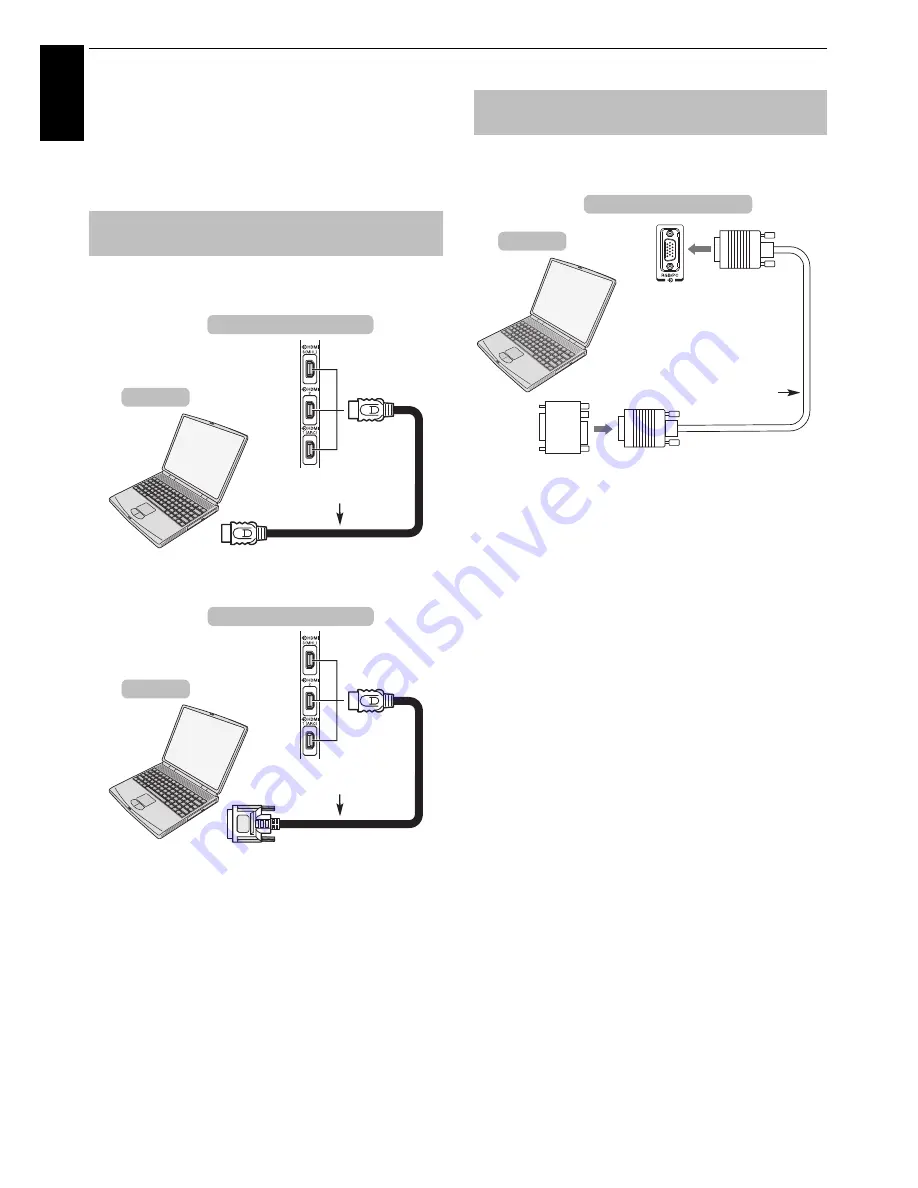
12
En
g
lis
h
CONNECTING YOUR TV
Connecting a computer
With either an HDMI or an RGB/PC connection,
you can watch your computer’s display on the
television.
When connecting a PC to the HDMI terminal on the
television, use an HDMI cable (type A connector).
If connecting a PC with DVI terminal, use an HDMI-to-DVI
adaptor cable.
For acceptable PC and video signal formats, see page 95.
NOTE:
• The edges of the images may be hidden.
• If connecting a certain PC model with a unique PC
signal, the PC signal may not be detected correctly.
When connecting a PC to the RGB/PC terminal on the
television, use an analogue RGB (15-pin) computer cable.
To use a PC, set the monitor output resolution on the PC
before connecting it to the television. For acceptable PC
signal formats, see page 94.
To display the optimum picture, use the PC setting feature
(see page 83).
NOTE:
• Some PC models cannot be connected to this television.
• An adaptor is not needed for computers with a
compatible mini D-sub15-pin terminal.
• Depending on the DVD’s title and the specifications of
the PC on which you are playing the DVD-Video, some
scenes may be skipped or you may not be able to pause
during multi-angle scenes.
• A band may appear at the edges of the screen or parts
of the picture may be obscured. This is due to scaling of
the picture by the set, it is not a malfunction.
• When PC input mode is selected, some of the
television’s features will be unavailable e.g.
Colour
System
in the
AV connection
menu.
• Some PC models may output unique signals that the
television may be unable to detect (see page 94).
• If connecting a certain PC model with a unique PC
signal, the PC signal may not be detected correctly.
To connect a PC to the HDMI
terminal
HDMI cable
Computer
the side of your television
HDMI-to-DVI
adaptor cable
Computer
the side of your television
To connect a PC to the RGB/PC
terminal
Mini D-sub
15 pin connector
RGB PC cable
(not supplied)
Conversion
adaptor if required
(not supplied)
Computer
the back of your television













































